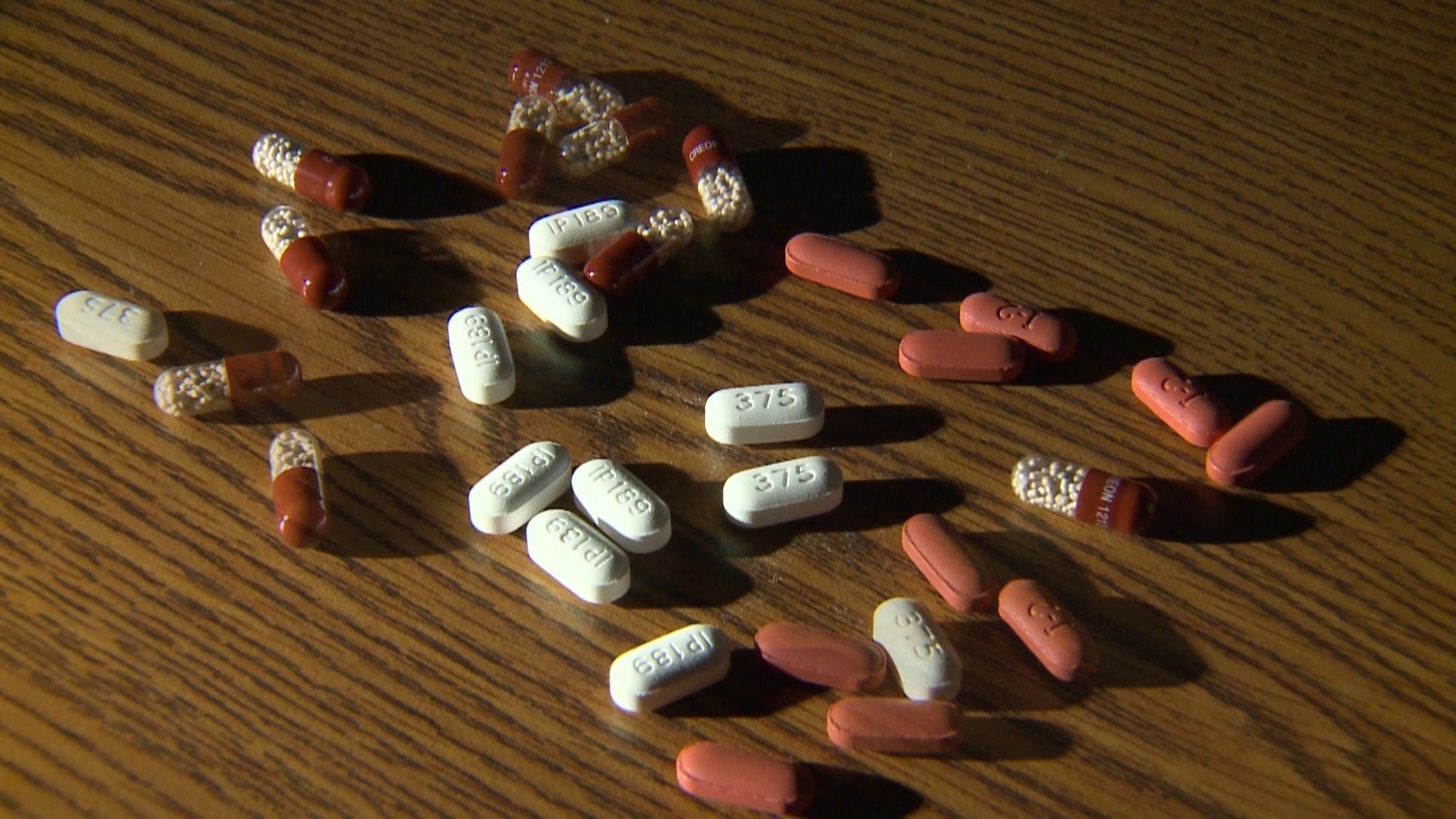HARTFORD — The U.S. Surgeon General is now calling substance abuse disorders the most pressing public health crisis of our time, but with proper supports and treatment options the Surgeon General reports recovery is possible.
Matthew Deluca is living proof that recovery is attainable. He’s turned his journey into hope, helping others find their way to a healthy life.
“It’s something more powerful than I’ve ever been able to possibly comprehend,” Matthew said about his recovery.
He said his addiction to drugs started as “fun and games” in high school, where he was once the quarterback for Newtown High School’s football team.
“I was a good athlete, involved in high school sports, and there was that mentality, that play hard - party harder,” he said.
By the time he graduated he was already overcome by drug use.
“I was using really anything I could get my hands on,” he said.
Matthew said that he eventually added heroin use to the mix, but it wasn’t long before the need to use the drug turned into a longing to get clean.
“There’s nothing I wanted more than to stop using drugs and alcohol," he said. "I would go to sleep every single night crying myself to sleep thinking about what I had to do that day in order to get my drugs."
His family, also desperate to get him healthy again, helped him get into a treatment program.
“I needed some sort of intervention to happen because I was dying. I was about 135 pounds, I was literally dripping away… I was dying,” Matthew said.
He said during his first tries at treatment, he wasn’t emotionally ready, which lead to a heartbreaking relapse.
“I couldn’t possibly conceive how I was getting high again," he said. "I had just gone through all of this. i had just put my family through such tremendous pain and I was home and I was using again and it scared me. It really did. It scared me."
The next time he returned to treatment, he said there was a shift in his and his family’s approach.
“We’re not accepting of your behavior. We’re not accepting of what you’re doing, but we understand why and we just want to get you help,” he said about his family’s encouragement to him at that time.
Donna Deluca, Matthew’s mother, also described that time in their lives.
"As a parent, dealing with this nightmare for so many years, I could see why some lose hope,” she said.
Matthew is Donna’s second son to struggle with heroin addiction.
“It was exhausting having not one, but two children be afflicted with the disease… and wonder if sometimes if they were going to live or die,” Donna said.
Matthew, with the support of his parents, returned to treatment, this time fully surrendering.
“I went into that program with one thing and that was willingness,” he said.
He said he came out this time, on the other side, with a new perspective.
“I’m never going to be ‘normal’ ever again. I will always be an addict. That is something that I will always deal with in my life and when I realized that, and when I actually truly accepted that, is when my life started to change,” Matthew said. “The way I look at it now, looking back, I was an addict long before I ever put a substance in my body.”
In a recent report, the U.S. Surgeon General labeled addiction as a “chronic brain disease” that “reduces a person’s ability to control their substance use.”
When matched with the right treatment, recovery like Matthew’s is possible, though.
“It kind of blossomed into a beautiful recovery and a life is honestly beyond my wildest dreams,” he said.
He now heads the C.A.R.E.S group alongside his mother. Their efforts focus on educating and supporting families afflicted with addiction.
Matthew also launched “Everyone Knows Someone,” a social media campaign aimed at giving young people a place to talk openly about addiction.
“You’re not going to be judged, you’re not going to be criticized and you’re not going to be made to feel embarrassed about what’s going on. You’re going to be greeted with open arms,” Matthew said.
His work now turning his mom’s tears of pain to joy.
“It’s what you hope for that your children grow up to be," she said. "Healthy and productive members of society."
Matthew is now holding his head high.
“I walked around in a cloud of shame for so many years and if I could stop one person having to do that then I feel like I’m doing my job,” he said.
Here in Connecticut there are a total of 1,101 residential beds to treat substance use disorders. That number includes 167 residential detox facilities.
The state’s Department of Mental Health and Addiction Services told Fox 61 these are not beds specific to treating opioid addiction, but that they're for all substance use disorders. They also said at any given time the beds are full an average of 90 percent of the time.
Miriam Delphin-Rittmon, the department’s Commissioner, said not everyone in need of treatment is in need of a bed, in patient care, or a residential facility, some can begin treatment on an outpatient basis.
She also said the department is looking to launch a new program that better connects people who end up in the hospital for an overdose or for withdrawals to treatment.
“Where we’re looking to connect recovery coaches with emergency departments, so if an individual has overdosed they’ll then be linked with a recovery coach,” Delphin-Rittmon said.
For those in need of immediate help, call 1-800-563-4086 to access the department’s assessment hotline. An individual will be linked up to the nearest assessment center where he or she will be advised on what the appropriate first step of treatment is, based on the individual’s addiction.
For other ways to find help with addiction click here.

